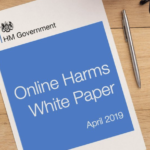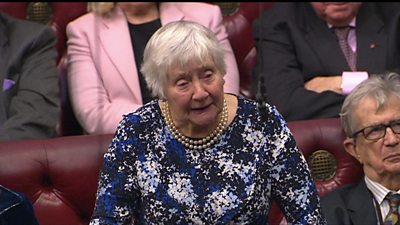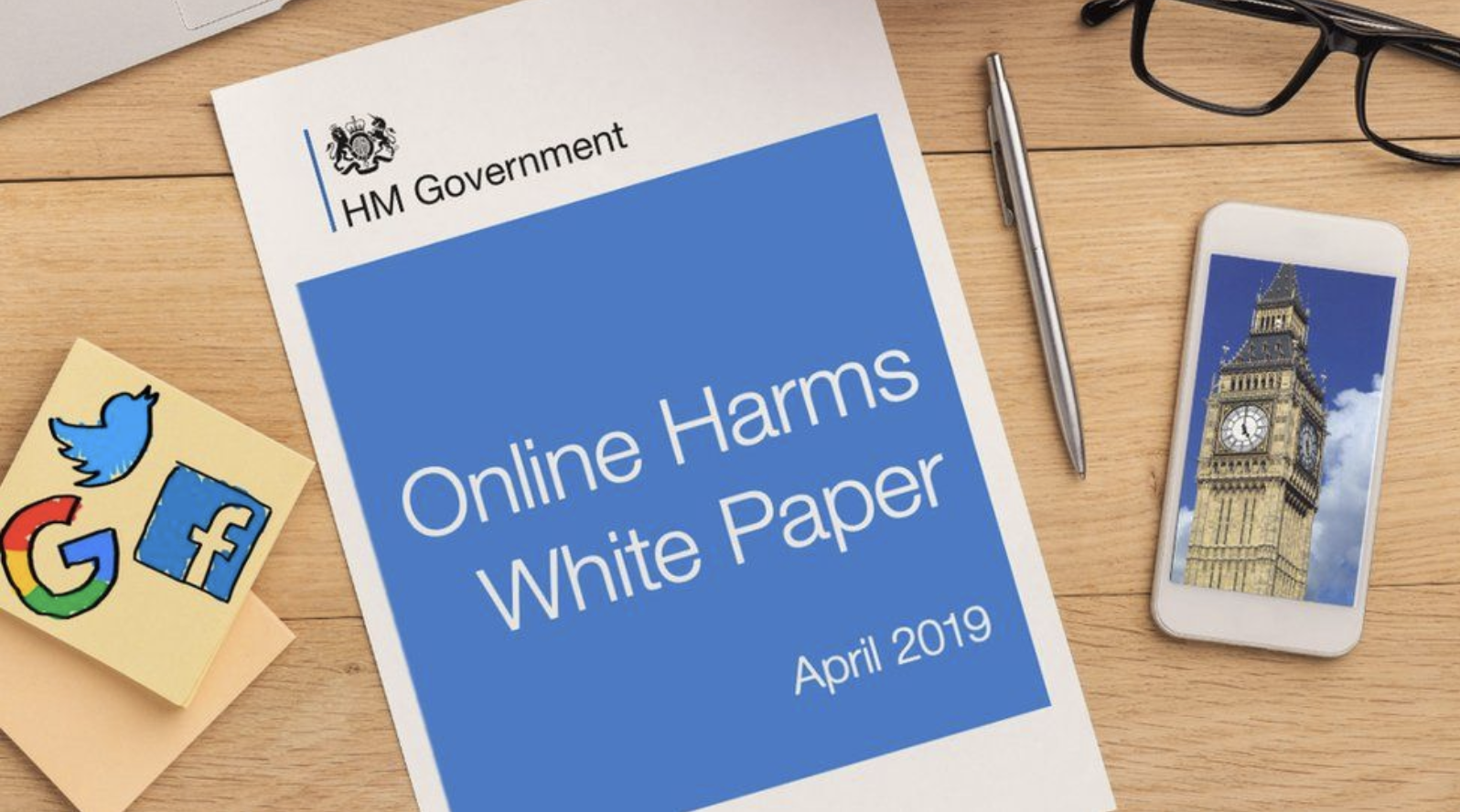Digital ID: What’s the current state-of-play in the UK?
On 22 July, as part of the #DigitalID2021 event series, techUK hosted an insightful discussion exploring the current state-of-play for digital identity in the UK and how to build public trust in digital identity technologies. The panel also examined how the UK’s progress on digital ID compares with international counterparts and set out their top priorities to support the digital identity market and facilitate wider adoption.
The panel included:
- Lord Tim Clement-Jones, House of Lords Spokesperson for Digital for the Liberal Democrats
- Margaret Moore, Director of Citizen & Devolved Government Services, Sopra Steria (Chair)
- Julie Dawson, Director of Regulatory and Policy, Yoti
- Laura Barrowcliff, Head of Strategy, GBG Plc
You can watch the full webinar here or read our summary of the key insights below:
The UK’s progress on digital identity
Opening the session, the panel discussed progress around digital identity since the start of the pandemic.
Julie Dawson raised a number of developments that indicate steps in the right direction. Before the pandemic over 3.5m EU citizens proved their settled status via the EU Settlement Scheme, whilst the JMLSG and Land Registry have both since explicitly recognised digital identity, with digital right to work checks and a Home Office sandbox on age verification technologies in alcohol sales also introduced since March last year. She also lauded the creation of the Digital Regulation Cooperation Forum as a great example of joining up across government departments, such as on the topic of age assurance.
Lord Tim Clement-Jones on the other hand noted that the pace of change has remained slow. He said that the UK government needs to take concrete action and should focus on opening up government data to third party providers. He also made the point that the u-turn on the Digital Economy Act Part 3 has not as yet been rectified and so the manifesto pledge to protect children online has still to be fulfilled. Julie pointed out that legislative change in terms of the Mandatory Licensing Conditions are still needed, to enable a person to prove their age to purchase alcohol without solely requiring a physical document with a physical hologram.
Collaboration across industry around digital identities was also highlighted by Julie, drawing upon the example of the Good Health Pass Collaborative which has emerged since the start of the pandemic. The Collaborative has brought together a variety of stakeholders and over 130 companies to work on an interoperable digital identity solution to facilitate international travel post-COVID to operate at scale once more.
Examining the Government alpha Trust Framework and latest consultation
Moving on to look at the government’s alpha Trust Framework for digital identity, as well as the newly published consultation on digital identity and attributes, the panel explored what these documents do well and what gaps ultimately remain.
Julie Dawson and Laura Barrowcliff both saw a lot of good in the new proposals, with Laura highlighting how the priorities in the government’s approach around governance, inclusion and interoperability broadly hit on the right points. Julie also highlighted the role for vouching in the government’s framework as a positive step and emphasised the government’s recognition of the importance of parity for digital identity verification as one of the most central developments for wider adoption of the technology.
Providing a more cautious view, Lord Tim Clement-Jones said the UK risked creating a byzantine pyramid of governance on digital identity. He pointed to the huge number of bodies envisaged to have roles in the UK system and raised concerns that the UK will end up with a certification scheme that differs from anyone else’s internationally by not using existing standards or accreditation systems.
Looking forward, Julie highlighted that providers are looking for clarity on how to operate and deliver over the next 18 months before any of these documents become legislation. She also expressed the sincere hope that the progress made in terms of offering digital Right to Work checks, alongside physical ones, will continue rather than end in September 2021.
She identified two separate ‘tracks’ for public and private sector use of digital identity and raised the need for a conversation on when and how to join these up with the consumer at the heart. When considering data sources, for example, the ability of digital identity providers to access data across the Passport Office, the DVLA and other government agencies and departments is critical to support the development of digital identity solutions.
The panel was pleased to see the creation of a new government Digital Identity Strategy Board which they hoped would drive progress but raised the need for further transparency about ongoing work in this space, including a list of members, TOR and meeting minutes from these sessions.
Public trust in digital identity
One of the core topics of conversation centred upon trust in digital identity technologies and what steps can be taken to drive wider public trust in this space.
Lord Tim Clement-Jones said that there is a key role for government on standards to ensure digital identity providers are suitable and trustworthy, as well as in providing a workable and feasible proposal that inspires public confidence.
Julie highlighted how, alongside the Post Office, Yoti welcomed the soon to be published research undertaken by OIX into documents and inclusion.
Laura Barrowcliff emphasised the importance of context for public trust, putting the consumer experience at the heart of considerations. Opening up digital identity and consumer choice is one such way of improving the experience for users. Whilst much of the discussion on trust ties in with concerns around fraud, Laura highlighted how digital identity can actually help from a security and privacy perspective by embodying principles such as data minimisation and transparency. She also highlighted how data minimisation and proportionate use of digital identity data could be key for user buy-in.
Lessons from around the world
Looking to international counterparts, the panel drew attention to countries around the world which have made good progress on digital identity and key learnings from these global exemplars.
The progress on digital identity made in Singapore and Canada was mentioned by Julie Dawson, who emphasised the openness around digital identity proposals – which span the public and private sector – and the work being done to keep citizens informed and involve them in the process.
Julie also raised the example of the EU, which is accelerating its work on digital identity with an approach that also spans the public and private sector and is looking at key issues such as data sources whilst focusing on the consumer. Lord Tim Clement-Jones emphasised the importance of monitoring Europe’s progress in this area and the need for the UK government to consider how its own approach will be interoperable internationally.
Panellists discussed the role digital identities have played in Estonia where 99% of citizens hold digital ID and public trust in digital identities is the norm. However, they recognised key differences between the UK and Estonia. In the UK, digital identity solutions are developing in the context of widespread use of physical identification documents, whereas digital identities were the starting point in Estonia.
Beyond the EU, Laura said that GBG has a digital identity solution in Australia where the market for reusable identities is accelerating rapidly. She highlighted that working with private sector companies who have the necessary infrastructure and capabilities in place is critical to drive adoption.
Priorities for digital identity
Drawing the discussion to a close, each of the panellists were asked for their top priority to support public trust and the growth of the digital identity market in the UK.
Transparency was identified as Julie Dawson’s top priority, particularly around what discussions are happening within and across government departments and on the work of the Strategy Board.
Lord Tim-Clement Jones highlighted data and trustworthy data-sharing as key. He said he hopes to see the formation of data foundations and trusts of publicly held information that is properly curated to be used or shared on the basis of set standards and rules, which should spill over into the digital identity arena.
Laura Barrowcliff said simplicity is most important, keeping things simple for those working in the ecosystem as well as for consumers, with those consumers at the heart of all decision-making processes.
These are the ingredients for good higher education governance
I recently took part in a session on "Higher education governance - the challenges that lie ahead and what can we do about it " at an AdvanceHE Clerks and Secretaries Network Event and shared my view on university governance. This is the blog I wrote afterwards which reflects what I said.
https://www.advance-he.ac.uk/news-and-views/ingredients-good-higher-education-governance
Chairing a Higher Education institution is a continual learning process and it was useful to reflect on governance in the run up to Advance HE’s recent discussion session with myself and Jane Hamilton, Chair of Council of the University of Essex.
Governance needs to be fit for purpose in terms of setting and adhering to a strategy for sustainable growth with a clear set of key strategic objectives and doing it by reference to a set of core values. And I entirely agree with Jane that behaviour and culture which reflect those values are as important as governance processes.

But the context is much more difficult than when I chaired the School of Pharmacy from 2008 when HEFCE was the regulator. Or even when I chaired UCL’s audit committee from 2012. The OfS is a different animal altogether and despite the assurance of autonomy in the Higher Education Act, it feels a more highly regulated and more prescribed environment than ever.
I was a Company Secretary of a FTSE 100 company for many years so I have some standard of comparison with the corporate sector! Current university governance, I believe, in addition to the strategic aspect, has two crucial overarching challenges.
First, particularly in the face of what some have described as the culture war, there is the crucial importance of making, and being able to demonstrate, public contribution through – for example – showing that:
- We have widened access
- We are a crucial component of social mobility, diversity and inclusion and enabling life chances
- We provide value for money
- We provide not just an excellent student experience but social capital and a pathway to employment as well
- In relation to FE, we are complementary and not just the privileged sibling
- We are making a contribution to post-COVID recovery in many different ways, and contributed to the ‘COVID effort’ through our expertise and voluntary activity in particular
- We make a strong community contribution especially with our local schools
- Our partnerships in research and research output make a significant difference.
All this of course needs to be much broader than simply the metrics in the Research Excellence and Knowledge Exchange Frameworks or the National Student Survey.
The second important challenge is managing risk in respect of the many issues that are thrown at us for example
- Funding: Post pandemic funding, subject mix issues-arts funding in particular. The impact of overseas student recruitment dropping. National Security and Investment Act requirements reducing partnership opportunities. Loss of London weighting. Possible fee reduction following Augar Report recommendations
- The implications of action on climate change
- USS pension issues
- Student welfare issues such as mental health and digital exclusion
- Issues related to the Prevent programme
- Ethical Investment in general, Fossil Fuels in particular
- And, of course, freedom of speech issues brought to the fore by the recent Queen’s Speech.
This is not exhaustive as colleagues involved in higher education will testify! There is correspondingly a new emphasis on enhanced communication in both areas given what is at stake.
In a heavily regulated sector there is clearly a formal requirement for good governance in our institutions and processes and I think it’s true to say, without being complacent, that Covid lockdowns have tested these and shown that they are largely fit for purpose and able to respond in an agile way. We ourselves at Queen Mary, when going virtual, instituted a greater frequency of meetings and regular financial gateways to ensure the Council was fully on top of the changing risks. We will all, I know, want to take some of the innovations forward in new hybrid processes where they can be shown to contribute to engagement and inclusion.
But Covid has also demonstrated how important informal links are in terms of understanding perspectives and sharing ideas. Relationships are crucial and can’t be built and developed in formal meetings alone. This is particularly the case with student relations. Informal presentations by sabbaticals can reap great rewards in terms of insight and communication. More generally, it is clear that informal preparatory briefings for members can be of great benefit before key decisions are made in a formal meeting.
External members have a strong part to play in the expertise and perceptions they have, in the student employability agenda and the relationships they build within the academic community and harnessing these in constructive engagement is an essential part of informal governance.
So going forward what is and should be the state of university governance? There will clearly be the need for continued agility and there will be no let-up in the need to change and adapt to new challenges. KPI’s are an important governance discipline but we will need to review the relevance of KPIs at regular intervals. We will need to engage with an ever wider group of stakeholders, local, national and global. All of our ‘civic university’ credentials may need refreshing.
The culture will continue to be set by VCs to a large extent, but a frank and open “no surprises” approach can be promoted as part of the institution’s culture. VCs have become much more accountable than in the past. Fixed terms and 360 appraisals are increasingly the norm.
The student role in co-creation of courses and the educational experience is ever more crucial. The quality of that experience is core to the mission of HE institutions, so developing a creative approach to the rather anomalous separate responsibilities of senate and council is needed.
Diversity on the Council in every sense is fundamental so that there are different perspectives and constructive challenge to the leadership. 1-2-1s with all council members on a regular basis to gain feedback and talk about their contribution and aspirations are important. At Council meetings we need to hear from not just the VC, but the whole senior executive team and heads of school: distributed leadership is crucial.
Given these challenges, how do we attract the best council members? Should we pay external members? Committee chairs perhaps could receive attendance allowance type payments. But I would prefer it if members can be recruited who continue to want to serve out of a sense of mission.
This will very much depend on how the mission and values are shared and communicated. So we come back to strategic focus, and the central role of governance in delivering it!
Shirley Williams 1930-2021
So sad to lose Shirley Williams, such a warm, principled and inspiring political pioneer. The conscience of the Liberal Democrats

The Digital Regulation Cooperation Forum: Priorities for UK Digital Regulation

https://www.aldes.org.uk/the-drcf-priorities-for-uk-digital-regulation/
Last July the Competition and Markets Authority (CMA), the Information Commissioner’s Office (ICO) and the Office of Communications (Ofcom) formed the Digital Regulation Cooperation Forum (DRCF) which last month outlined its priorities in a Workplan for 2021/22.
The creation of the DRCF is a significant move by these regulators in the coordination of regulation across digital and online services and, as they say, recognises the unique challenges posed by regulation of online platforms which are playing an increasingly important role in our lives.
The Workplan for 2021/22 is designed to set out what they fashionably call a roadmap for how Ofcom, the CMA, ICO and, from this month as a full member of the DRCF, the FCA, will increase the scope and scale of this coordination through “pooling expertise and resources, working more closely together on online regulatory matters of mutual importance, and reporting on results annually.”
In launching the Workplan, the DRCF invited comments and observations on its content. The challenge has been taken up by a number of Liberal Democrat colleagues in the Lords, coordinated by myself as Digital Spokesperson.
We wholly welcome the creation of the DRCF and the creation of a cross regulator Workplan. Cross collaboration between regulators is of great importance as technological, digital and online issues faced by regulators increasingly converge, especially in the light of the growing emergence of digital issues across the regulatory field, such as data use and access, consumer impact of algorithms and the advent of online harms legislation.
We suggested a number of additions to supplement what is essentially an excellent core plan with some other areas of activity which should be undertaken as part of the plan, resources permitting.
The context of the regulators’ work is provided by the overall aim of the Government to ensure “an inclusive, competitive and innovative digital economy” . To this we want to see the addition of the words “ethical, safe and trustworthy”.This is not only crucial in terms of public trust but very much in line with one of the announced three key pillars of the Government’s AI Strategy to be published later this year by the Government and other aspects of the government’s National Data Strategy.
The key areas of activity set out in the Workplan are:
- Responding strategically to industry and technological development;
- Developing joined up regulatory approaches;
- Building shared skills and capabilities
- Building clarity through collective engagement
- Developing the DRCF
Responding Strategically to industry and technological developments
A number of emerging trends and technological developments are referred to in the plan. These include broad areas such as design frameworks, algorithmic processing (and we must assume this includes algorithmic decision making), digital advertising technologies and end-to-end encryption.
There are significant implication from other emerging issues however which we also think require particular attention from the regulators such as Deepfakes, Live Facial Recognition, collection use and processing of behavioral data beyond advertising and devices (such as smart meters) which collect and share data and are part of the Internet of Things.
Developing joined up regulatory approaches
Here the Workplan suggests concentrating on Data Protection and Competition Regulation, the Age Appropriate Design Code (aka Children’s Code) introduced by the Data Protection Act, the regulation of video-sharing platforms and online safety and interactions in the wider digital regulation landscape.
We believe however, especially in the light of considerable debate about what are appropriate remedies for market dominance in the context of the digital economy and the growing power of Big Tech, that there should be cross regulator consideration of how proportionate but timely interim and ex ante intervention and structural versus behavioral remedies have application.
Given the importance of simultaneously encouraging innovation and trustworthy use and application of data and AI, we also thought there should be a focus on generic sandboxing approaches to innovative regulated services.
Building shared skills and capabilities
To some extent the Workplan in this area proposes a journey of exploration. It suggests building shared skills through, for instance, secondment programmes, collocated teams, building a shared centre of excellence and co-recruitment initiatives, but without specifying what those shared skills might be.
Last December, I chaired a House of Lords follow up enquiry to the AI Select Committee’s Report AI in the UK : Ready Willing and Able? and our report: AI in the UK: No Time for Complacency concluded and recommended as follows:
“60. The challenges posed by the development and deployment of AI cannot currently be tackled by cross-cutting regulation. The understanding by users and policymakers needs to be developed through a better understanding of risk and how it can be assessed and mitigated…..
61. The ICO must develop a training course for use by regulators to ensure that their staff have a grounding in the ethical and appropriate use of public data and AI systems, and its opportunities and risks. It will be essential for sector specific regulators to be in a position to evaluate those risks, to assess ethical compliance, and to advise their sectors accordingly….”
In addition to these proposals on upskilling on risk assessment and mitigation and the ethical and appropriate use of public data, we have now suggested that, as part of the Workplan, a wider set of skills could be built across the regulators, particularly in the AI space, such as assessments of use of behavioral data in advertising and of ethical compliance of AI systems, Algorithm inspection, AI audit and monitoring and evaluation of Digital ID and Age Verification solutions.
As regards technical expertise available to the DRCF we took the view that it is important that the Alan Turing Institute, the Centre for Data Ethics and Innovation and the Intellectual Property Office are closely involved with the work programme and the DRCF makes full use of their skills and knowledge.
Given the depth and technical nature of many of the skills required, the proposal for a centre of excellence to provide common expertise in digital and technological issues which could draw upon and be of service to all relevant regulators, is vital and should be a resource priority.
As regards the last two priority activities Building Clarity Through Collective Engagement and DRCF development we are strong supporters of the intention to draw upon international expertise. The EU, the Council of Europe and the OECD are all building valuable expertise in AI risk assessment by reference to ethical principles and human rights.
We also welcomed the regulators’ intention to update and review the current MOU’s between the regulators to ensure greater transparency and cooperation.
Other, non-statutory regulators,however, have a strong interest in the objectives and outcomes of the DRCF too. There is welcome reference in the Workplan to the Advertising Standards Authority involvement with the DRCF but as regards other relevant regulators such as the Press Representation Council and BBFC we want to see them included in the work of the DRCF given their involvement in digital platforms.
In addition, there is the question of whether other statutory regulators which have an interest in digital and data issues such as OFWAT or OFGEM with smart meters, or the CAA with drone technology for example will be included in the DRCF discussions and training.
We even think there is a good case for the DRCF to share and spread knowledge and expertise, as it develops, to the wider ADR and ombudsman ecosystem and even to the wider legal system in the light of the new Master of Rolls, Sir Geoffrey Vos’, recent espousal of AI in the justice system.
It may not yet have great public profile but how and the speed at which the work of the DRCF unfolds, matters to us all.
Regulating the Internet
Lord C-J discussion with Tom Ascott of the Online Harms Foundation March 21.

As technology, AI and the internet weave themselves deep into our societies, Synthetic Society is here to help you untangle and understand the mess. Listen to interviews with leading experts, political figures, and entrepreneurs, guiding us through complex issues
This week our guest is Lord Clement-Jones, and we’ll be talking about if technology is becoming more polarised, how the government can lead on regulation for the internet and artificial intelligence, and the relevance of culture and the arts in the digital space.
https://syntheticsociety.libsyn.com/regulating-the-internet
Saying No to Internal Vaccine Passports

https://bigbrotherwatch.org.uk/2021/04/70-mps-launch-cross-party-campaign-against-covid-passes/
70+ MPS LAUNCH CROSS-PARTY CAMPAIGN AGAINST COVID PASSE
BIG BROTHER WATCH TEAM / APRIL 2, 2021
Further to Sir Keir’s comments about vaccine passports being un-British and against the “British instinct”, over 70 MPs have launched a cross-party campaign opposing their “divisive and discriminatory use”.
MPs and peers from Labour, the Liberal Democrats and Conservative parties have signed a pledge to oppose the move.
Signatories include former Labour leader, Jeremy Corbyn, Labour MPs Dawn Butler and Rebecca Long Bailey, former director of Liberty, Baroness Shami Chakrabarti, and over 40 MPs from the Conservative Covid Recovery Group.
They have been supported by campaign groups Big Brother Watch, Liberty, the Joint Council for the Welfare of Immigrants (JCWI) and Privacy International.
The pledge states:
“We oppose the divisive and discriminatory use of COVID status certification to deny individuals access to general services, businesses or jobs.”
QUOTES
Baroness Chakrabarti said:
“International travel is a luxury but participating in your own community is a fundamental right. So internal Covid passports are an authoritarian step too far. We don’t defeat the virus with discrimination and oppression but with education, vaccination and mutual support.”
Leader of the Liberal Democrats, Ed Davey MP said:
“As we start to get this virus properly under control we should start getting our freedoms back, vaccine passports – essentially Covid ID cards – take us in the other direction.
“Liberal Democrats have always been the party for civil liberties, we were against ID cards when Blair tried to introduce them and we are against them now.
“I’m pleased Big Brother Watch is helping drive forward a growing consensus against Covid ID cards in our politics. Now I hope we can start to turn the tide on the creeping authoritarianism we are seeing from Number 10 across a broad range of issues.”
Sir Graham Brady MP said:
“Covid-Status Certification would be divisive and discriminatory. With high levels of vaccination protecting the vulnerable and making transmission less likely, we should aim to return to normal life, not to put permanent restrictions in place.”
Silkie Carlo, director of Big Brother Watch said:
“Our common goal is to emerge from lockdown – healthy, safe and free. But we won’t arrive at freedom through exclusion. Covid passes would be the first attempt at segregation in Britain for many decades, dividing communities without reducing the risks. We are in real danger of becoming a check-point society where anyone from bouncers to bosses could demand to see our papers. We cannot let this Government create a two-tier nation of division, discrimination and injustice.”
Minnie Rahman, Campaigns Director at JCWI, said:
“The Hostile Environment, which is built on identity checks, has already been proven to cause discrimination against migrants and people of colour. On top of this, migrant communities face significant barriers to accessing the vaccine. Any recovery plan which risks increasing racial discrimination and purposefully leaves people behind is doomed to fail.”
Sam Grant, Head of Policy and Campaigns at Liberty, said:
“We all want to get out of the pandemic as quickly as possible, but we need to do so in a way that ensures we don’t enter a ‘new normal’ which diminishes the rights and liberties we took for granted before the COVID crisis.
“Any passport system has the potential to create a two-tier society, and risk further marginalising people who are already discriminated against and cut off from vital services. Vaccine passports would allow ID systems by stealth, entrenching inequality and division.
“We need strategies that support and enable people to follow public health guidance, including vaccination, alongside more support for the most marginalised who have suffered the sharp edge of the Government’s focus on criminal justice over public health. We won’t get out of this pandemic by entrenching inequality, but only by protecting everyone.”
ENDS
Full list of signatories:
Labour Party
Diane Abbot MP
Bell Ribeiro-Addy MP
Tahir Ali MP
Rebecca Long Bailey MP
Clive Lewis MP
Beth Winter MP
Rachel Hopkins MP
Apsana Begum MP
Richard Burgon MP
Ian Byrne MP
Dawn Butler MP
Jeremy Corbyn MP
Mary Kelly Foy MP
Ian Lavery MP
Ian Mearns MP
John McDonnell MP
Grahame Morris MP
Kate Osborne MP
Zarah Sultana MP
Claudia Webbe MP
Mick Whitley MP
Nadia Whittome MP
Baroness Chakrabarti
Baroness Bryan of Partick
Lord Woodley
Lord Sikka
Lord Hendy
Liberal Democrats
Ed Davey MP
Layla Moran MP
Munira Wilson MP
Alistair Carmichael MP
Daisy Cooper MP
Wendy Chamberlain MP
Sarah Olney MP
Christine Jardine MP
Jamie Stone MP
Tim Farron MP
Lord Scriven
Lord Strasburger
Lord Tyler
Lord Clement-Jones
Conservative Party
Mark Harper MP
Steve Baker MP
Sir Iain Duncan Smith MP
Harriett Baldwin MP
Esther McVey MP
Adam Afriyie MP
Bob Blackman MP
Sir Graham Brady MP
Nus Ghani MP
Andrew Mitchell MP
Peter Bone MP
Ben Bradley MP
Andrew Bridgen MP
Paul Bristow MP
Philip Davies MP
Richard Drax MP
Jonathan Djanogly MP
Chris Green MP
Philip Hollobone MP
Adam Holloway MP
David Jones MP
Simon Jupp MP
Andrew Lewer MBE MP
Julian Lewis MP
Karl McCartney MP
Craig Mackinlay MP
Anthony Mangnall MP
Stephen McPartland MP
Anne Marie Morris MP
Sir John Redwood MP
Andrew Rosindell MP
Greg Smith MP
Henry Smith MP
Julian Sturdy MP
Sir Desmond Swayne MP
Sir Robert Syms MP
Craig Tracey MP
Jamie Wallis MP
David Warburton MP
William Wragg MP
Sir Charles Walker MP
NGOs/Businesses
Big Brother Watch
Liberty
Migrants Organise
Joint Council for the Welfare of Immigrants
medConfidential
Privacy International
Online Harms: The Need for Early Legislation
This is what I said when (finally) the Government made its response to the White Paper Consultation in January

My Lords, over three years have elapsed and three Secretaries of State have come and gone since the Green Paper, in the face of a rising tide of online harms, not least during the Covid period, as Ofcom has charted. On these Benches, therefore, we welcome the set of concrete proposals we finally have to tackle online harms through a duty of care. We welcome the proposal for pre-legislative scrutiny, but I hope that there is a clear and early timetable for this to take place.
As regards the ambit of the duty of care, children are of course the first priority in prevention of harm, but it is clear that social media companies have failed to tackle the spread of fake news and misinformation on their platforms. I hope that the eventual definition in the secondary legislation includes a wide range of harmful content such as deep fakes, Holocaust denial and anti-Semitism, and misinformation such as anti-vax and QAnon conspiracy theories.
I am heartened too by the Government’s plans to consider criminalising the encouragement of self-harm. I welcome the commitment to keeping a balance with freedom of expression, but surely the below-the-line exemption proposed should depend on the news publisher being Leveson-compliant in how it is regulated. I think I welcome the way that the major impact of the duty of care will fall on big-tech platforms with the greatest reach, but we on these Benches will want to kick the tyres hard on the definition, threshold and duties of category 2 to make sure that this does not become a licence to propagate serious misinformation by some smaller platforms and networks.
I welcome the confirmation that Ofcom will be the regulator, but the key to success in preventing online harms will be whether Ofcom has teeth. Platforms Toggle showing location ofColumn 1711will need to demonstrate how they have reduced the “reasonably foreseeable” risk of harm occurring from the design of their services. In mitigating the risk of “legal but harmful content”, this comes down to the way in which platforms facilitate and even encourage the sharing of extreme or sensationalist content designed to cause harm. As many excellent bodies such as Reset, Avaaz and Carnegie UK have pointed out—as the noble Lord, Lord Stevenson, said, the latter is the begetter of the duty of care proposal—this means having the power of compulsory audit. Inspection of the algorithms that drive traffic on social media is crucial.
Will Ofcom be able to make a direction to amend a recommender algorithm, how a “like” function operates and how content is promoted? Will it be able to inspect the data by which the algorithm trains and operates? Will Ofcom be able to insist that platforms can establish the identity of a user and address the issue of fake accounts, or that paid content is labelled? Will it be able to require platforms to issue fact-checked corrections to scientifically inaccurate posts? Will Ofcom work hand in hand with the Internet Watch Foundation? International co-ordination will be vital.
Ofcom will also need to work closely with the CMA if the Government are to protect vulnerable victims of online scams, fraud, and fake and misleading online reviews, if they are explicitly excluded from this legislation. Ofcom will need to work with the ASA to regulate harmful online advertising, as well. It will also need to work with the Gambling Commission on the harms of online black-market gambling, as was highlighted yesterday by my noble friend Lord Foster.
How will this new duty of care mesh with compliance with the age-appropriate design code, regulated by the ICO? As the noble Lord, Lord Stevenson, has mentioned, the one major fudge in the response is on age verification. The proposals do not meet the objectives of the original Part 3 of the Digital Economy Act. We were promised action when the response arrived, but we have a much watered-down proposal. Pornography is increasingly available and accessible to young people on more sites than just those with user-generated content. How do the Government propose to tackle this ever more pressing problem? There are many other areas that we will want to examine in the pre-legislative process and when the Bill comes to this House.
As my honourable friend Jamie Stone pointed out in the Commons yesterday, a crucial component of minimising risk online is education. Schools need to educate children about how to use social media responsibly. What commitment do the Government have to online media education? When will the strategy appear and what resources will be devoted to it?
These are some of the yet unanswered questions before the draft legislation arrives, but I hope that the Government commit to a full debate early in the new year so that some of these issues can be unpacked at the same time as the pre-legislative scrutiny process starts.
Dozens of Public Space Protection Orders now illegal under new Government guidance
Just before Christmas without any publicity at all the Home Office published new Statutory Guidance governing Public Spaces Protection Orders (PSPOs), a power that has been used to ban a wide range of public activities, including ball games, rough sleeping, busking, skate boarding and standing in groups.
The Manifesto Club without whom I worked on this campaign to change the guidance carried out FOI surveys into the use of the PSPO power in the period up until June 2017 (using this data, they estimate that around a fifth of existing PSPOs are explicitly prohibited, or strongly advised against, by the new guidance.
But because of the lack of publicity, as they say in their most recent posting Councils such as Runnymede Borough Council, Ealing Council and Elmbridge Borough Council are are continuing to pass and enforce unreasonable PSPOs.
Read what the Manifesto Group say about the changes.
The important change is that the new Statutory Guidance makes clear that orders should only target the specific behaviour that is causing nuisance or harm, rather than activities that are in themselves harmless (see our analysis of the Guidance changes).
The Guidance states that ‘councils should ensure that the Order is appropriately worded so that it targets the specific behaviour or activity that is causing nuisance or harm and thereby having a detrimental impact on others’ quality of life’.
It also states that PSPOs ‘should not be used to target people based solely on the fact that someone is homeless or rough sleeping’, and that they should not target ‘everyday sociability, such as standing in groups which is not in itself a problem behaviour’.
The Guidance strongly advises against the banning of activities for young people, such as skateboarding, stating: ‘It is important that public spaces are available for the use and enjoyment of a broad spectrum of the public, and that people of all ages are free to gather, talk and play games.’
Our surveys of PSPOs found that, up until June 2017, there had been 319 PSPOs issued by 152 local authorities. Of these, we judge that 64 PSPOs, or a fifth of all orders, either openly violate or strongly go against the terms of the new Statutory Guidance.
This means that dozens of councils have passed orders which violate the new guidance, since they target behaviours that are essentially innocuous.
These include:
- 30 bans on loitering or congregating in groups: the guidance explicitly states that standing in groups ‘is not a problem behaviour’;
- 14 PSPOs introducing dispersal powers (allowing council officers to disperse people from an area): this fails to target a ‘specific behaviour or activity’;
- 3 bans on the wearing of face or head coverings: this activity does not in itself cause nuisance or harm;
- 7 bans on rough sleeping or sleeping in public: the guidance states that rough sleeping itself should not be targeted;
- 7 restrictions on everyday activities in public spaces that are so broad as to be unjustifiable for the aim of preventing detrimental behaviour;
- 3 orders targeting the activities of homeless people, where their behaviour is not actually causing nuisance or harm”
The Guidance strongly advises against the banning of activities for young people, such as skateboarding.
Pharmacy must Seize the Opportunities in Healthcare says Lord C-J
I was recently asked to make the introduction and welcome for delegates to the the Pharmaceutical Group of the European Union Symposium hosted by the Royal Pharmacy Society and the National Pharmaceutical Association. This is what I said.
Leading the Change
Ladies and gentlemen can I first of all say how delighted I am to be able, thanks to the National Pharmacy Association and the PGEU, to join in your President Raj Patel’s welcome to London and this important conference today. It is an awesome thought that the PGEU represents 400,000 pharmacists across the European Union and in my remarks today you will not be mistaken to find more than a tinge of sadness about the UK’s exit from the EU.
As a former health spokesman for my party, then Chair of Council of the School of Pharmacy University of London, now part of University College London and coming up to its 175th year, and an active Vice Chair of the UK’s All Party Parliamentary Pharmacy Group, I have been a supporter of community pharmacy and pharmacists for many years taken a strong interest in the development and resourcing of community pharmacy services and the necessary education and training of young pharmacists.
My plan this morning is set out the current policy and political context and challenges for Community Pharmacy in the UK and what I believe it can achieve if gets its act together in a manner which is really credible to your external audiences and I am delighted that my good friend and long term collaborator -not least over the years in the annual School of Pharmacy lecture-Emeritus Professor of Pharmaceutical and Public Health Policy David Taylor, who with his colleagues at the School has done so much to critique and develop public policy in this area, including the important area of medicines management, is joining me on the the platform today too.
He will be highlighting some of the difficult questions that need to be answered by pharmacy leaders in the face of the demands of change and wider health and political institutions.
Let me say right from the start that I firmly believe that community pharmacy has much more to look to in its future than its past.
For several years now there has been a common vision- expressed in a succession of reports both by pharmacists themselves, such as 20 years ago The Royal Pharmaceutical Society’s Pharmacy In A New Age initiative and more recently in in Now or Never: Shaping Pharmacy For the Future; Government White Papers such as “Pharmacy in England: Building on Strengths and Delivering the Future” in 2008 and more recently the package of the package of reforms, including changes to the community pharmacy contractual framework announced last October; numerous supportive and insightful reports from my own All Party Parliamentary Pharmacy Group, and the Murray Review for NHS England into Community Pharmacy Clinical Services, particularly important in the light of the new Sustainability and Transformation Plans and the NHS 5-Year Forward Plan. Finally, of course, contributions from the European Pharmacists Forum such as the role of pharmacy in supporting the Public’s Health, in 2015.
All conclude that community pharmacy should not just be able to keep its medicines supply role but should and is able to offer an extended range of health care services in fields ranging from prevention and early diagnosis through to the management of chronic conditions and supporting self care.
And successive governments in a piecemeal way have tried to respond to this variously through legislation.
The essence of the vision is that pharmacies and pharmacists are able to:
- offer professional support for self-care and speed access to diagnosis and early stage treatments; and
- make optimal use of new IT based capacities in areas ranging from locally managed dispensing to the implementation of national public health programmes like smoking cessation support and the prevention and control of cardiovascular diseases and conditions such as type 2 diabetes.
This reflects the fact that since the start of the 20th Century there has already been a profound change in pharmacy – in essence, from making medicines to safely supplying the products of the pharmaceutical revolution. The focus of the latter has moved from antibiotics like the sulphonamides and penicillin to targeted anti-cancer treatments like Imatinib, as well as the provision of medicines like anti-hypertensive and lipid lowering products.
However, since the 1960s, ie during the last half century, another change has been put on the public policy table - from pharmaceutical supply to providing clinical pharmacy services – health care provided directly by pharmacists in a community setting.
The fact is however that this vision and these good intentions have not produced speedy outcomes, there has been a gap between rhetoric and reality.
Frustratingly, progress in making the best use of the valuable resource represented by community pharmacy in the UK has been slow for a whole range of reasons some external to healthcare some internal:
- Inappropriately constructed commissioning and funding mechanisms and constant change in those mechanisms,
- misallocation of resources;
- attitudes and culture in other health professionals patrolling boundaries;
- frequency of changes in Ministerial responsibility inconsistency in policy and lack of understanding by politicians of the clinical potential of community pharmacy;
- but significantly also because of a lack of self-confidence and assertiveness in the pharmacy profession itself and this includes over read and write access to patient records.
It could be argued that the slow pace of change means that many of our young pharmacists are over educated for what in many cases they do. We must use our community pharmacists to better clinical effect.
So given over a long period of time that we have a great deal of agreement on a common vision what needs to be done to drive desirable change?
David and I do not pretend to know the answers but hope our opening questions can help make the day a successful way of taking your plans forward.
Across Europe important issues currently relate to implementing the Falsified Medicines Directive and ensuring the proposed Proportionality Directive is appropriately drafted, plus from the UK point of view accommodating the challenge of Brexit and the future of the NHS which - it is no secret - is facing a funding challenge.
But key point I want to make today is that the intellectual case for a change in the direction of providing clinical care in the community pharmacy setting - and when appropriate in partnership with other primary and secondary care providers - is in large part won.
Few now oppose pharmacists doing more to improve health outcomes in areas such as, say, contraception provision and use or the management of vascular disease risks and relieving doctor’s workloads while providing many people with more convenient access to medicines when they need it.
So given we have this great resource and the necessary demand why is there a danger in countries like Britain of community pharmacy being cut back to little more than a minimal cost supply function involving large scale mechanised dispensing and lowest possible cost medicines delivery systems?
My key message is framed from a political perspective. It is:
Politicians, irritating though they are, and I’m not going to absolve them from responsibility from where we are, by and large want to help, but to help you they need across party to achieve consistency in having:-
- a clear picture of the public interest related problem helping community pharmacists will help to resolve and;
- a really clear and credible explanation of how community pharmacy will cost effectively solve the problem for the people we mutually seek to serve.
- A clear understanding of the barriers to the realisation of this vision
The bottom line is that it is no use coming to politicians just saying help us for the sake of the profession itself. As a lawyer I know that, I am in short order replaceable by Artificial Intelligence for example!
Community pharmacists need to keep developing their clinical case more powerfully saying that together they can help patients and the public and resolve some of the key problems facing us in health care delivery and resourcing. Pan European events like today are in my view crucial in that task.
Reduce FOBT stake to £2 says Lord C-J
Earlier this year I put forward a Private Members Bill in the Lords to reduce the FOBT maximum stake currently set at £100 to £2. This is the argument I made.
Through the Bill I am today pursuing a matter of considerable concern that has been raised in this House on a number of previous occasions by myself and my noble friends in particular, and which reflects great concern outside in the country.
Fixed-odds betting terminals—FOBTs—are touch-screen roulette machines in betting shops that allow the user to bet up to £100 every 20-second spin. They have transformed the betting sector since their introduction in 2001, and the Gambling Act 2005 classified FOBTs as B2s. The noble Baroness, Lady Jowell, stated at the time that if evidence of harm emerged, the £100 stake could be reduced as FOBTs were “on probation”. It is clear that the experiment to allow high-speed roulette in easily accessible betting shops has been a disaster and it is notable that as a result, the noble Baroness, Lady Jowell, herself recently called on the Government to act as the evidence of harm continues to build.
The essence of my Bill is to reduce the stake to £2 a spin. This is the maximum stake on gambling machines in all other easily accessible venues such as arcades and bingo halls. It will reduce gambling-related harm, prevent further betting shop clustering and restrict high-street money laundering.
The human misery caused is enormous. I will not rehearse all the harrowing stories, but many have been reported and they are extremely distressing. Clinical psychologist Anna Henry, who treats gambling addicts, said that FOBTs are designed to foster addiction:
“Basically the industry has created casinos in the High Street … These machines isolate the player, there is nothing to distract him from that screen. Its speed is to encourage frenzy. And thus more spending”.
More crime takes place in betting shops than in any other gambling venue. A freedom of information request to the Gambling Commission revealed 11,232 incidents in 8,980 betting shops from January to December 2014—an average of 1.25 incidents per premises, up from 0.82 the previous year. This compares to just 479 incidents related to the remaining 2,747 venues. These incidents account for 97% of police call-outs to all gambling venues.
The reality is that these machines are highly dangerous products which are a catalyst for problem gambling, social breakdown and serious crime in communities. Just take the case of a gambler in Leeds who was given a two-year sentence for attacking a betting shop worker
with a knife. The man had lost £1,000 playing FOBTs—money that was intended to be a deposit on a flat. He said that he was “utterly possessed” by the machines.
FOBTs are also useful to money launderers, as huge amounts of cash can be inserted into the terminals to legitimise the proceeds of crime. There were 633 suspicious activity reports in betting shops last year related to money laundering, but much of it goes unreported. A Gambling Commission report that will be considered by the Treasury said:
“The betting sector is regarded as high-risk relative to other gambling sectors. The customer base is varied, and often customers remain anonymous to the operator within the non-remote sector. The reporting and detection of suspicious transactions in the non-remote betting sector is often frustrated by the ability of a customer to remain anonymous”.
Bookmakers have a legal duty to comply with the licensing objectives of the Gambling Act 2005, but how can they comply and keep gambling crime-free and harm-free when the FOBT stakes are so high? Each betting shop is permitted four FOBTs, which now account for more than half of bookmakers’ profits. One has only to look at the importance of these machines in the recent figures for William Hill and Ladbrokes. The gross win on each machine is worth £1,000 a week. That led to a 43% increase in the number of betting shops on the high street between 2004 and 2012.
While planning authorities are in a better position to refuse applications, licensing authorities are still required to aim to permit betting shops. They are still powerless to stop the proliferation of betting shops and FOBTs on the high street. One street in the London Borough of Newham has 18 betting shops. As a result, 93 local authorities led by Newham Borough Council submitted a proposal under the Sustainable Communities Act. They called for the stake to be cut to £2 due to the anti-social behaviour, crime and problem gambling that the machines are causing in their local areas. This unprecedented step represents the widest support that any Sustainable Communities Act proposal has ever received. The Government rejected that proposal last year, but the Local Government Association has since resubmitted it under the terms of the FCA. What will the Government’s response be in the coming months, when discussions are due to take place?
There are wider economic arguments. There has been much scaremongering about the economic impact of any action to restrict FOBT machines. The ABB has claimed that 7,800 betting shops and 39,000 jobs would be at risk if there were a reduction in the maximum FOBT stake from £100 to £2 per spin. However, a report by NERA Economic Consulting, The Stake of the Nation—Balancing the Bookies, concluded that cutting the stake on these machines would reduce the number of bookmakers by about 800, primarily where clusters had developed. Moreover, it found that the move would create a net positive 2,000 or so high-street jobs as money returned to other, more labour-intensive and productive high-street shops.
Elsewhere, other Governments are concerned about the impact of these terminals. The machines are already banned in Ireland. Above all, there is the impact of
FOBTs on the vulnerable and the disadvantaged. Research published last year by SPICe, the Scottish Parliament Information Centre, found that problem gambling is seven times higher in deprived areas, seven times higher among harmful drinkers and six times higher among the mentally ill. A 2014 survey by 2CV found that 80% of all betting shop users think that FOBTs are addictive, rising to 89% among FOBT users. The survey found evidence of harmful levels of gambling. Users playing weekly or more often account for 63% of session activity and 90% of cash inserted into FOBTs.
We have all seen that the Responsible Gambling Trust is now facing problems with the Charity Commission as a result of conflicts of interest on its trustee board. I do not want to add to its woes but its lengthy research programme failed to carry out its primary purpose—establishing whether FOBTs are safe. It did, however, provide some insight into worrying trends in machine gambling, including the fact that a person gambling with higher stakes is more likely to make a poorer judgment than when gambling with lower stakes, that the number of people betting the maximum £100 stake doubles between 10 pm and midnight, and that 37% of FOBT gamblers are problem gamblers. The Gambling Commission has stated that, in interpreting the available evidence where the evidence is mixed or inconclusive, it will take a precautionary approach in accordance with its principles for licensing and regulation. So surely, in the face of this evidence, the stake should be reduced until there is an indication that it can be safely increased above £2.
The fact is that government measures to date have been ineffective. After months of grass-roots pressure and concerns expressed across the country, last year the Government introduced the Gaming Machine (Circumstances of Use) (Amendment) Regulations 2015, which were implemented on 6 April. These regulations require FOBT customers to authorise stakes of £50 or more either via account-based play or via over-the-counter staff authorisation. In January 2016, the DCMS published an evaluation of the impact of the regulations. However, a study by Landman Economics has demonstrated that the DCMS was completely unable to determine whether the regulations on the £50 stake had led to an increase in player control, let alone a reduction in the number of problem gamblers. The DCMS argues that increased session length may have led to more considered decision-making, but the time between spins increased only very marginally. It is much more likely that players who used to stake up to the £50 to £100 range are simply losing their money more slowly. This would not represent more controlled play. The report concludes that the DCMS evaluation is flawed and cannot realistically be used as a reliable guide to policy.
Where one has regard to the scale and nature of the problems that FOBT machines are causing, on the precautionary principle a very much more serious and more appropriate response is required, as set out in the Bill before us. The time for tinkering has gone, and there is no doubt that the public support action against FOBTs. In fact, a YouGov poll showed that only 4% of the public would oppose a ban on them, with 58% of those who gamble more than once a month being in favour of an all-out ban. ComRes polling showed
that two-thirds of people in marginal constituencies believe that FOBT machines are harmful and they support the reduction of the maximum stake to £2. FOBTs are destroying lives and damaging communities. The Bill will reduce the maximum stake on FOBTs to £2 a spin. I believe that it will reduce the serious harm caused by the machines, deter money laundering and reduce betting shop clustering on the high street.
I am an optimist and I very much hope that the Government will support the Bill. Modest though it is, if the Government reject it, and especially if they claim that they can achieve the same goals by other means, I believe they will be obliged to answer some vital questions. Will the Minister confirm when the next review of stakes and prizes is due to take place, and that the issue of FOBT stakes will be included within it? Does he agree that, as proposed by the Gambling Commission, and given the evident harms that FOBTs are causing, the Government should act on a precautionary basis and reduce the stake on FOBTs? In that context, does the Minister believe that a substantial review of FOBTs stakes is the best way to deal with the harms the terminals are causing? Will he make sure that FOBTs are properly regulated through harm-mitigation measures to ensure that they no longer present a risk to the vulnerable? If so, how? And how will the Minister ensure that the Government properly address the money-laundering risk that FOBTs present?
The remainder of the debate and the Minister's reply is at :
http://www.publications.parliament.uk/pa/ld201516/ldhansrd/text/160311-0001.htm#16031122000325










